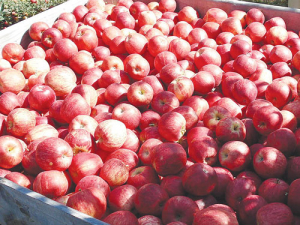The New Zealand apple industry is expecting fruit of good quality and size as it heads into the 2023 export harvest season.
“At the same time, we are estimating export volumes to be similar to last year’s, at an estimated 20.4 million TCEs [Tray Carton Equivalents],” says New Zealand Apples & Pears Incorporated (NZAPI) chief executive, Terry Meikle.
“We are seeing a reduction in the volumes of European Union-bound traditional varieties such as Braeburn - which is expected to be down by 15 percent - as well as Pink Lady and Jazz. Some near market varieties like Fuji, NZ Queen and NZ Rose are also going to be down in volume,” Meikle says.
“However - and this bodes well for the industry’s future - we are seeing continued growth in trademarked varieties such as Rockit, Envy and Dazzle.”
Meikle says the industry is focused on quality and a positive, world-leading future.
“While we still have challenges just like every other country in the world, the New Zealand apple industry has a lot of advantages, thanks to decades of investment and exceptionally committed and passionate growers.
“Importantly, consumers enjoy the taste experience of New Zealand apples. This is something we are immensely proud of and are intent on delivering on, in line with the reputation we have built up over many years.”



















